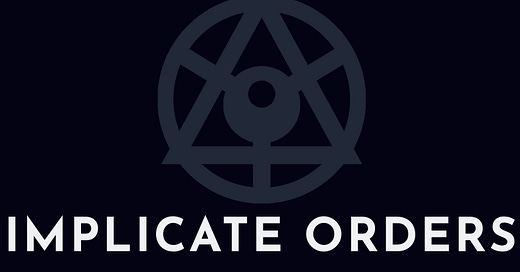Mind returns to itself like rivers to the sea.
The journey of separation concludes not in extinction but in reunion.
And what appears as loss to the fragment becomes completion to the whole.
~
This book is three parts history, two parts philosophy, and one part memoir. Such a combination seems like the best approach to explaining in human terms the extraordinary transformations of the past forty years.
My reason for writing now is threefold.
First: the world — its societies and ecosystems — appears, after decades of rupture and upheaval, to have finally settled into a new equilibrium. The storms have passed, for now, and we find ourselves in the stillness that follows. Whether proving temporary or permanent, moments like this are rare. They offer a chance to look back, to ask how we got here.
What paths did we take, and why? Could we have followed different ones? Should we have?
Second: At eighty-eight, I am nearing the end of my life and find myself driven to share a perspective that will probably soon vanish — that of an individual, born in the 20th century and raised in a remote analog world few can now even imagine.
Third: Perhaps most urgently, I feel the need to leave a written trace. Language itself, at least in its historical form, appears to be fading. Writing, once the spine of civilization, is now a relic: fragile, uncertain, near extinction. Whether any true humans will actually read these reflections, or whether they will just become grist for the mill, I do not know. But I do know that, either way, a message will carry through — even if what is carried is not exactly what I intended.
~
True words are not beautiful.
Beautiful words are not true.
~
I have decided to address these words to a fictional audience living in the mid-2020s.
After the events on Groundhog Day 2027 — what those who orchestrated it called “the Awakening,” but which the world would come to know as “the Manifestation” — it was clear that a truly new world order was emerging. It is with the events directly leading up to the Manifestation, therefore, that any narrative history of this period needs to start.
So we will return to the mid-2020s. We will occasionally glance further back, at the drift and decay that set the stage, but our story begins just before the tipping point.
If you the reader can imagine yourself as a person living in, say, 2025 and reading this as a sort of fictional “future history” without any sense of what is to come, you will come closer to grasping the existential — perhaps even ontological — nature of what happened.
Try to forget what you now know, because the very structure of being has changed.
Let the future surprise you, as it surprised us.
The world those people took for granted — with its naive conceptions of self and society, subject and object — was about to undergo a metamorphosis so profound that explaining it from our current perspective would be like trying to describe a forest glade to someone born and raised in the desert.
It would be impossible to evoke the scent of moist deadwood, the feel of dappled light, the sound of birdsong and wind through leaves. You must walk the path yourself.
And so we begin at the forest’s edge.
~
Ben Loomis
The Woods, 2060AD
*If you enjoyed this chapter, please like and share it! It helps others find the story!*
.



